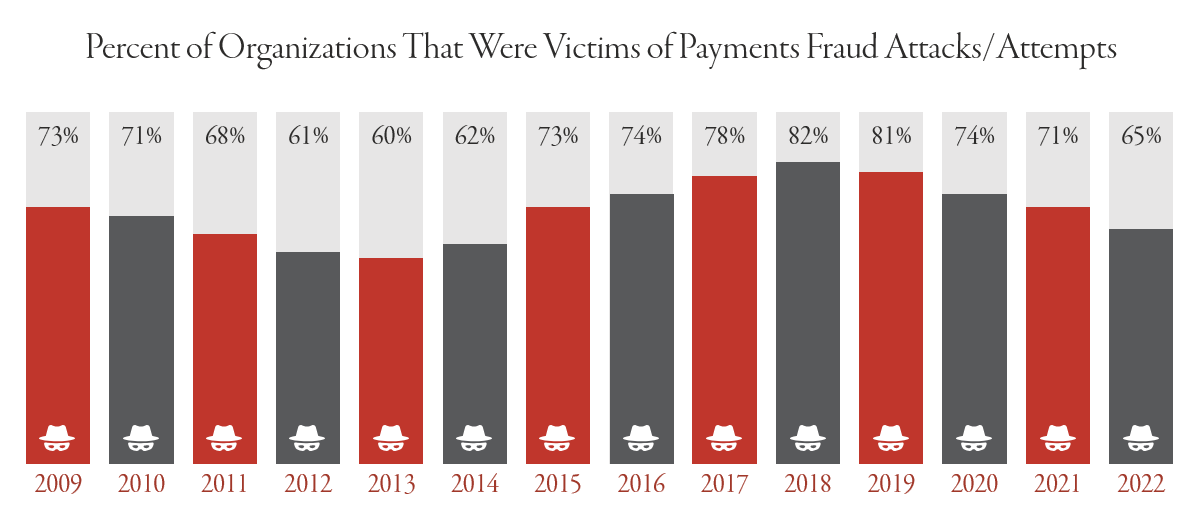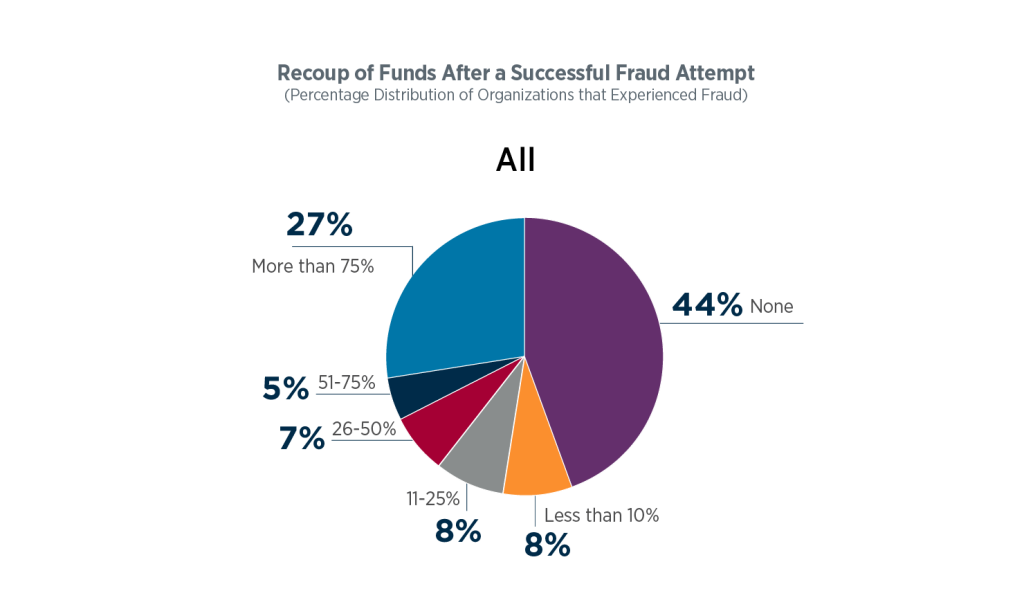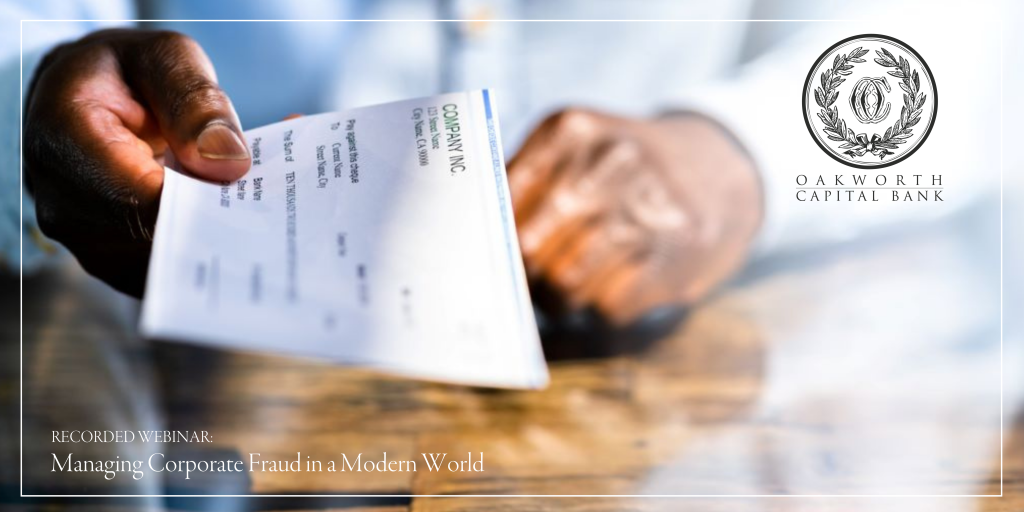Have you safeguarded your hard-earned assets against fraud? Scammers continue to grow more creative than ever; masters of modern-day deceit that will strike when least expected, often disguised as someone you trust.
According to the Association for Financial Professionals Payments Fraud and Control, 65% of companies were victims of actual or attempted payment fraud in 2022.
That number is expected to increase for 2023.
What is payments fraud?
Payments fraud is the act of completing a transaction with unauthorized payment information, resulting in a loss of funds. It is one of the biggest challenges faced by today’s business owners– no matter how big or small a company. Fraudsters are gaining access to information through increasingly sophisticated techniques – which are constantly changing and updating – resulting in a constant battle to keep pace with new fraud methods.

*Source: Association for Financial Professionals
Where do most payments fraud for businesses originate?
Corporate payments fraud can originate from various sources. The most common sources of payments fraud for businesses include:
- Check Fraud – Many businesses continue to use paper checks, which is a common threat. Scammers will alter legitimate checks, often using stolen bank account information or lifting and adding different names to checks. Checks continue to be the payment method most vulnerable to fraud, with 63% reporting their organizations faced some kind of check fraud activity, either attempted or actual. Three-fourths reported that they plan to continue using paper checks, making it even more important to have fraud protection procedures in place.
- Wire Fraud – Scammers trick individuals or businesses into wiring funds into fraudulent accounts by using false invoices or impersonating legitimate suppliers. 45% (the highest in the past five years) cited wires as top payment method used during Business Email Compromise attempts (more on email compromise, below). Fraudsters are increasingly targeting ACH debits when attempting scams via email.
- Business Email Compromise (BEC) – Most payments fraud originates from an individual outside of the organization, via BEC. Scammers will impersonate executives or vendors through email. Fund transfers or sensitive information is requested from employees who believe the requests are authentic and legitimate. These types of attacks can be extremely sophisticated. Larger organizations (annual revenue of at least $1 billion with more than 100 payments accounts) were more susceptible to BEC scams.
- Credit and Debit Card Fraud – Scammers take the details of a credit or debit card and make purchases online. Instances of fraud via commercial card increased by 10 percentage points, and instances of fraud via ACH credits and virtual cards increased by 6 percentage points each.
- Invoice Fraud – Scammers send fake or altered invoices to businesses, pretending to be legitimate suppliers or vendors.
How Oakworth Can Help
When looking to report payments fraud, nearly 80% of organizations are most likely to seek assistance from their banking partners for guidance regarding the best steps to take minimize the impact of payments fraud. Twenty seven percent of 2022 payments fraud victims were able to successfully recover at least 75% of funds lost. However, nearly half (44%) of those victims were unsuccessful in doing so.

*Source: Association for Financial Professionals
As a business owner, it’s crucial to ensure that your banking partner has experience in dealing with payments fraud and will be able to expertly assist when the need arises. An effective treasury management system can prove invaluable in reinforcing a company’s anti-fraud procedures.
Note: This article is part of a special content series on Corporate Fraud Prevention. Also check out:
- The Benefits of Positive Pay
- 12 Key Solutions to Help you Protect Your Business Against Fraud
- Business Email Compromise
WATCH OUR RECORDED WEBINAR:
American businesses will lose an average of 5% of their gross revenues to fraud. The biggest contributing factor? Not having the right internal, standardized procedures in place in order to prevent fraud from occurring. Here, our Oakworth Treasury Management team gives a detailed discussion so you can better protect your business on the front end.
Featuring the following discussions:
What is Corporate Fraud? | Amelia Ricks CTP
Treasury Management Advisor, Central Alabama Market
Who are Fraudsters? What are Attacks? | Tyler Fruland
Treasury Management Specialist, Middle Tennessee Market
Corporate Fraud Solutions | Jaye B. Patterson
Treasury Management Specialist, South Alabama Market
This information is being provided for informational and educational purposes and is not meant to be taken as specific advice. All decisions regarding the legal implications of these strategies should be discussed with your advisors before being implemented.




